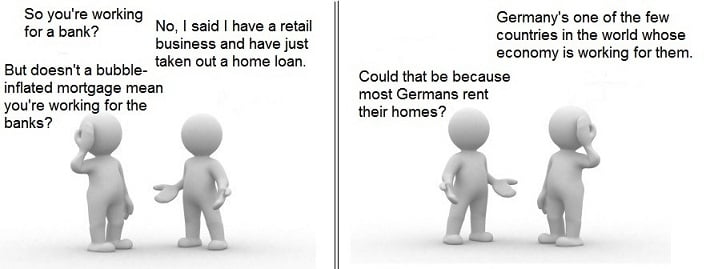A. The US approach: deficit budgets and printing money, in order to:
1. bail out the banks
2. keep the economy from falling off a cliff and
3. make ‘no hasty reforms’, so that
4. things might eventually improve
B. The European austerity approach: cutting government excess to ‘restore economies’:
1. bail out the banks
2. slash government services, in order to
3. augment the pool of unemployment, and
4. let the unemployed compete for jobs by cutting wages
C. The untested model: make business and industry more efficient and cost competitive by:
1. abolishing taxes on labour and capital
2. deriving necessary revenue from the holders of land and natural resources, based upon the value of land and natural resource ‘super profits’ (rents), and
3. reforming government expenditures as the economy improves
4. bailing out no banks
You say we need more funds to tackle poverty, homelessness, health, the environment, education and infrastructure? I say instituting the Henry Tax Review is a BIG step towards solving those problems.








